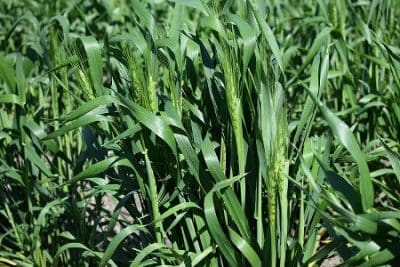FARMERS in Victoria are being warned that a trio of factors has increased the risk of cereal crops suffering from foliar disease this season.
 The combination of high stubble loads, a green bridge of volunteer cereals growing over summer and the early break have been ideal for the build-up of foliar disease pressure in cereals.
The combination of high stubble loads, a green bridge of volunteer cereals growing over summer and the early break have been ideal for the build-up of foliar disease pressure in cereals.
Agriculture Victoria research scientist Dr Mark McLean said it was critical to monitor crops during winter.
“Monitoring will allow farmers to decide whether fungicide management is needed prior to spring,” Dr McLean said.
“Growers are advised not to leave management until it is too late, as diseases are difficult and less economic to manage once established in a crop.”
Dr McLean said stubble-borne diseases such as yellow leaf spot of wheat and the spot form of net blotch of barley would be common in paddocks where stubble had been retained in the past two years.
“Stubble reduction practices such as burning, slashing and mulching will not be sufficient to reduce the risk of loss as there will still be enough residue to initiate disease,” he said.
“Growers should also review their variety ratings to help develop management plans.”
The green bridge of volunteer cereals growing in many paddocks over summer will have allowed the build-up of cereal rusts, with the early break to the season increasing the chance for disease development during favourable conditions.
Dr McLean said proactive foliar fungicide application was the most effective means to manage the threat of loss.
He said the risk of loss would be less in crops where effective seed treatments had been used, but growers needed to be familiar with product labels to know which diseases would be controlled and which diseases needed to be managed through the season.
“Research has shown that dual application of registered foliar fungicide at early stem elongation and flag emergence provide the greatest disease suppression for most foliar diseases of cereals,” he said.
“However, the economic benefits of this will depend on the season.”
Source: Agriculture Victoria



HAVE YOUR SAY